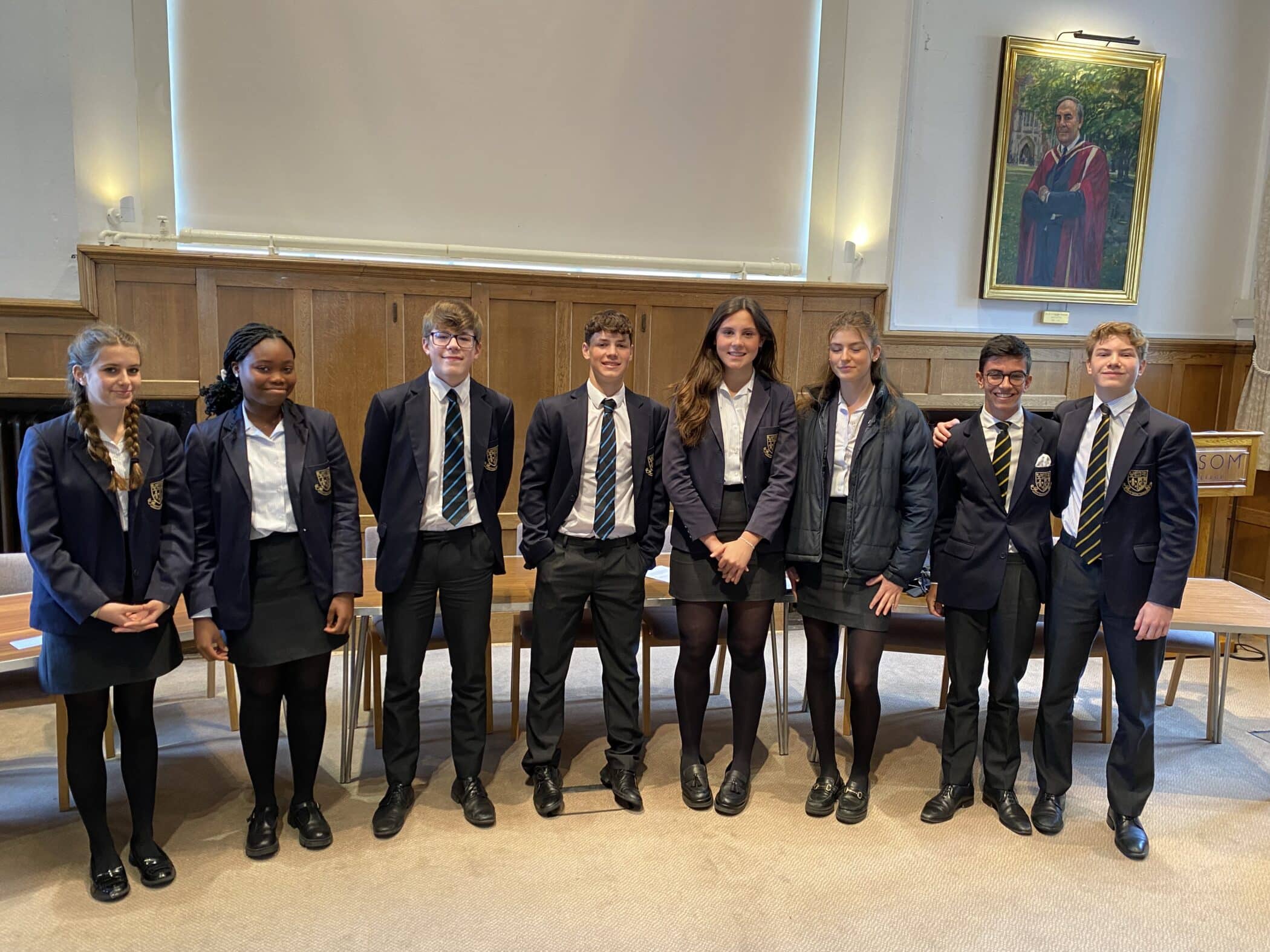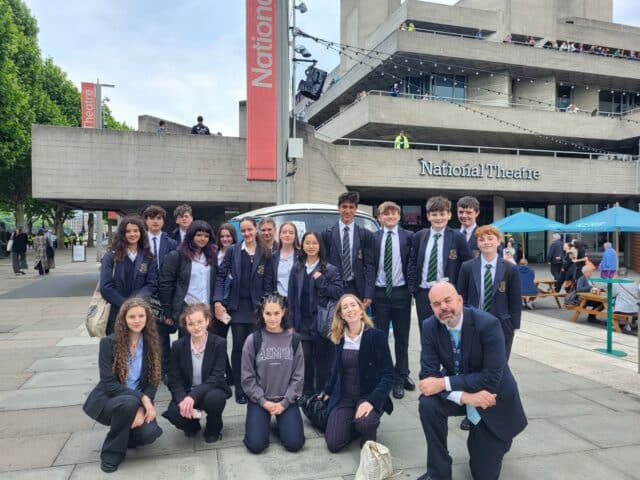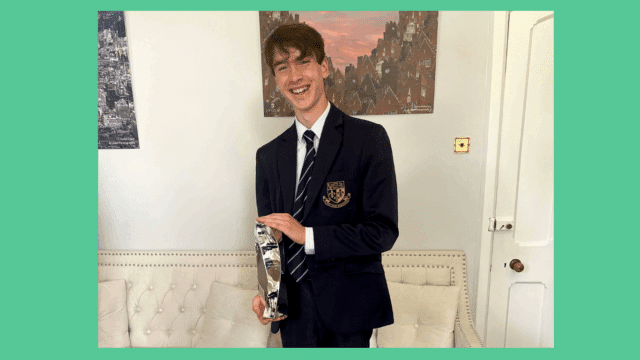The fantastic final four pairs in this year’s competition, Raven, Propert, White and Forest.
In honour of OE Mr John Darbyshire, the Inter-House Darbyshire Debating Competition is a highlight in the Summer Term’s busy calendar, as Houses put forward their most persuasive speakers in battles of logic, charisma and teamwork.
The Upper Fourth (Year 10) competition took place this half term, beginning with four concurrent heats. The debates were wide-ranging, with pupils considering the obligation to vote, the value of the Green Belt, Shakespeare’s place in the curriculum and the impact of TikTok. Pupils met the challenge of these motions with maturity and insight, delivering arguments underpinned by thorough research.
Eight Houses progressed to the semi-finals, taking place in Main Hall and Chapel. All pupils rose to the occasion, speaking with confidence to fill the somewhat imposing spaces. The first semi-final, which considered whether the prevalence of crime in television and film is worsening society, was won by Raven’s speakers, Samara Sarpong and Sophia Pirrie. They opposed the motion, convincingly arguing that crime is dependent on a multitude of factors, not merely that which appears on our screens.
The second semi-final debated the exploitation of animals in sport and entertainment. Whilst the opposition put forward sound arguments, with Murrell’s team calling for more stringent regulations rather than an outright ban, the proposition teams from White and Propert won the debate. Propert’s speakers, Arthur Garfield and John Gartside, were particularly engaging, illustrating their arguments with reference to horse racing, bear baiting and dog fighting.
The four Houses to reach the final were Raven, Forest, Propert and White, who debated the motion ‘This house believes that poverty is the greatest threat to social peace and security’. The quality of this debate, held on Tuesday morning, surpassed all others, and it was clear that every speaker had grown in confidence and poise as the rounds progressed.
Raven and Propert convincingly proposed the motion, supporting their arguments with reference to the current cost of living crisis, the link between a nation’s GDP and civil unrest and Hitler’s rise to power, arguing that poverty is the parent of crime and revolution. In rebuttal, White and Forest admirably opposed the motion, arguing that poverty is a symptom, not a cause, of social unrest. They also posited that intolerance and polarisation have greater detrimental impact on peace and security than poverty, citing the troubling prevalence of racially motivated attacks.
All four Houses demonstrated an impressive understanding of the topic and had undertaken detailed research to support their arguments with apt examples. Deciding the winner came down to each House’s engagement with their opponents’ arguments and each speaker’s style. Propert’s Arthur Garfield and John Gartside were both impressive speakers, however, it was Samara Sarpong, ably joined by Sophia Pirrie, who narrowly clinched the victory for Raven.





